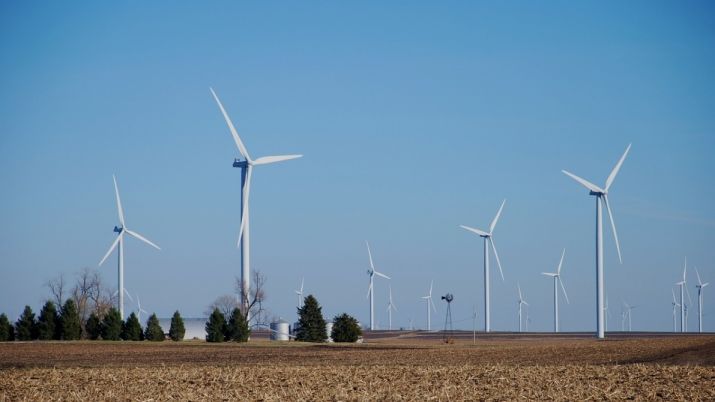ASTANA – The Eurasian Bank for Reconstruction and Development (EBRD) plans to invest approximately $244.2 million in Kazakh renewable energy sources (RES) attracting private and international financial investment. Fifty-two renewable energy facilities will be built through 2020, said Minister of Energy Kanat Bozumbayev during a Feb. 27 government meeting chaired by Prime Minister Bakytzhan Sagintayev.
He added EBRD wants to engage private and international investors for 40 to 80 million euros (US$48.8 million-$97.6 million).
“There are 55 operating RES with a total capacity of 336 megawatts. Up to the end of 2020, there are plans to put into operation about 52 renewable energy sources with a total capacity of two gigawatts. The total investment is almost $31 million (9.9 trillion tenge),” he said.
The Green Climate Fund approved $110 million in financing for Kazakhstan to implement RES projects under the EBRD, said Bozumbayev. Eni, General Electric energy companies and the Development Bank of Kazakhstan (DBK) are reviewing the perspectives to implement RES projects in the country.
The ministry is considering the possibility of cooperating with BRK-Leasing, Central-Asian Fuel and Energy Company, ENI International B.V., General Electric International Inc., Green Energy, Kaz Green Tek Solar and Samruk Kazyna United Green.
Bozumbayev noted the ministry attracted about $200 billion in foreign investments to the oil and gas industry, including more than $120 billion to develop Kashagan, Karachaganak and Tengiz, its largest projects.
Kazakh Invest and the Ministry for Investments and Development created a list of 145 investment projects worth $47.8 billion, said Minister for Investment and Development Zhenis Kassymbek. The projects would generate 35,000 jobs in Kazakhstan-China, Kazakhstan-Russia and Kazakhstan-Turkey projects.
Sagintayev noted a particular Kazakh-Chinese project which will create 20,000 jobs. The joint Kazakhstan-China programme is implementing 51 projects worth $27.7 billion.
The Ministry for Investment and Development suggested it is time for the country to adopt an offset agreements law that will provide for the conclusion of long-term contracts with foreign suppliers. Kasymbek noted more than 50 countries actively use the agreements, such as World Trade Organisation (WTO) members China, Greece, India, Poland, South Africa, South Korea and Sweden.
The offset agreements law was on track in 2015, but was postponed due to lack of support. Kassymbek asked Sagintayev to resume work on the draft.
The EBRD is a leading international financial institution in renewable energy and energy efficiency. The bank remains the largest and in some cases the only source of financing for renewable energy projects. It has invested more than $8.7 billion in the Kazakh economy. In 2017, EBRD devoted 40 percent of its investments to projects promoting green economy.

